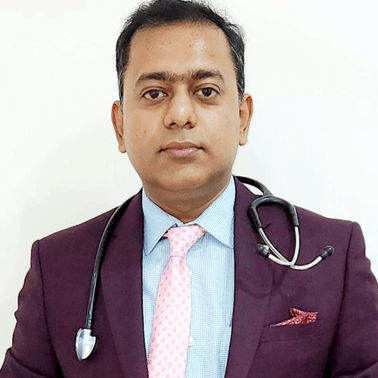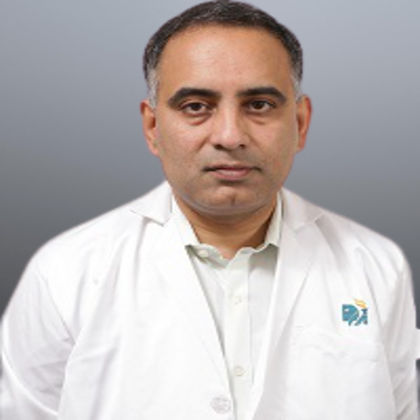Timing for Mammogram Breast Examination
Understand when to start mammogram screenings, how often to get them, and what to expect during the procedure. Learn the timing recommendations for average and high-risk women, preparation tips, and signs that require earlier screening to protect your breast health.


Breast health is a crucial aspect of overall well-being for women, and regular mammograms play a vital role in the early detection of breast cancer. However, many women are unsure about when to start getting mammograms, how often to have them, and what to expect during the process. This article aims to provide clear, compassionate guidance on the timing for mammograms, helping you make informed decisions about your breast health.
What is a Mammogram?
A mammogram is a low-dose X-ray of the breast used to detect early signs of breast cancer, often before symptoms appear. It can identify small lumps or abnormal changes in breast tissue that may not be felt during a physical exam.
When Should You Start Getting Mammograms?
The recommended timing for mammograms varies based on age, family history, and personal risk factors. Here’s a general guideline:
1. For Women at Average Risk (No Family History of Breast Cancer)
- Age 40-44: You may choose to start annual mammograms if you wish.
- Age 45-54: Annual mammograms are strongly recommended.
- Age 55 and older: You can switch to mammograms every two years or continue yearly screenings based on your doctor’s advice.
2. For Women at Higher Risk (Family History, Genetic Mutations, or Previous Breast Conditions)
- If you have a family history of breast cancer or carry BRCA1/BRCA2 gene mutations, your doctor may recommend starting mammograms before age 40 and possibly additional tests like MRIs.
Why is Timing Important?
- Early Detection Saves Lives: Breast cancer found early is easier to treat and has a higher survival rate.
- Breast Tissue Changes with Age: Younger women often have denser breast tissue, making mammograms
- slightly harder to read. After menopause, breast tissue becomes less dense, improving detection accuracy.
Signs You Should Get a Mammogram Sooner
Even if you’re below the recommended screening age, consult a doctor if you notice:
- A lump or thickening in the breast or underarm
- Changes in breast size or shape
- Nipple discharge (other than breast milk)
- Pain or dimpling of the skin
How to Prepare for a Mammogram
To make the process smoother:
- Schedule after your period: Breasts are less tender a week after menstruation.
- Avoid deodorants or powders: These can interfere with the X-ray images.
- Wear a two-piece outfit: You’ll need to remove your top for the test.
What to Expect During the Procedure
- The technician will position your breast on the machine’s plate.
- Another plate will press down to flatten the breast for a clear image (this may feel uncomfortable but lasts only a few seconds).
- The process takes about 20 minutes, and you can resume normal activities immediately.
Lifestyle Tips for Breast Health
While mammograms are essential, maintaining a healthy lifestyle also reduces breast cancer risk:
- Eat a balanced diet (rich in fruits, vegetables, and whole grains).
- Exercise regularly (at least 150 minutes per week).
- Limit alcohol (no more than one drink per day).
- Avoid smoking.
- Perform monthly self-exams to stay familiar with your breasts.
When to See a Doctor
If you’re unsure about when to start mammograms or have concerns about breast changes, consult a healthcare provider. Early consultation can help tailor a screening plan that’s right for you.
Book a Mammogram with Apollo 24|7
If you’re due for a mammogram or have concerns about your breast health, Apollo 24|7 offers convenient scheduling for screenings and consultations with expert radiologists. Early detection is key—take charge of your health today.
Final Thoughts
Knowing the right time for a mammogram can make a significant difference in detecting breast cancer early. Whether you’re approaching the recommended age or have risk factors, staying informed and proactive ensures better breast health. Remember, regular screenings, combined with a healthy lifestyle, are your best defence against breast cancer.Consult Top Oncologist
Consult Top Oncologist

Dr Gowshikk Rajkumar
Oncologist
10 Years • MBBS, DMRT, DNB in Radiation oncology
Bengaluru
Apollo Clinic, JP nagar, Bengaluru

Dr Sunita Samleti
Oncologist
18 Years • M.D. (Pathology)- TN Medical College, Mumbai University, Mumbai, Mar 2005 M.B.B.S. Grant Medical College, Mumbai University, Mumbai, Oct 1999
Chinagadila
Apollo Hospitals Health City Unit, Chinagadila

Dr.sanchayan Mandal
Oncologist
17 Years • MBBS, DrNB( MEDICAL ONCOLOGY), DNB (RADIOTHERAPY),ECMO. PDCR. ASCO
Kolkata
Dr. Sanchayan Mandal Oncology Clinic, Kolkata

Dr. Sanchayan Mandal
Oncologist
17 Years • MBBS, DNB Raditherapy, DrNB Medical Oncology
East Midnapore
VIVEKANANDA SEBA SADAN, East Midnapore

Dr. Raja T
Oncologist
20 Years • MBBS; MD; DM
Chennai
Apollo Hospitals Greams Road, Chennai
(175+ Patients)




